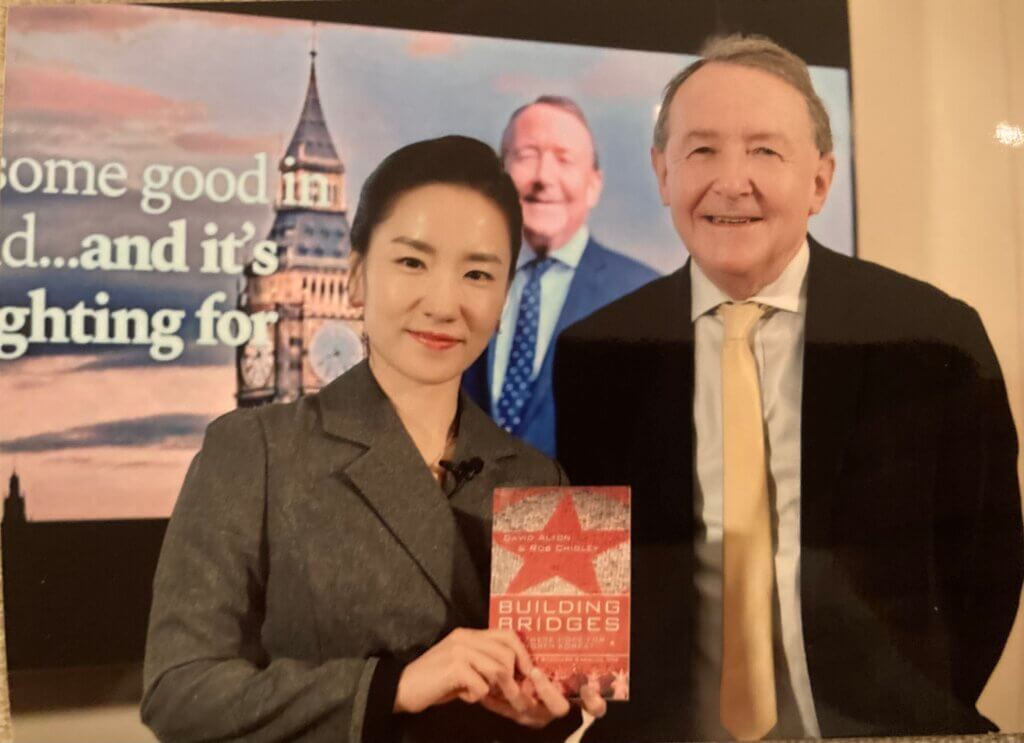


I greatly appreciate Foreign Minister Park’s invitation to join the conference today- and warmly congratulate the Yoon Administration for breathing new life into the elevation of human rights in North Korea. Minister Park was right to say that “Peace without human rights is a spurious peace”.
And Ambassador Lee was correct that to effectively address “the tangled web” the world’s democracies must stand with the ROK and the victims in North Korea.
It is 75 years since the promulgation of the Universal Declaration of Human Rights- with its 30 articles routinely breached in North Korea – and the Convention on the Crime of Genocide. Ten years ago Justice Kirby’s UN Commission of Inquiry report into North Korea left open a finding on Genocide but found incontrovertible evidence of crimes against humanity.
March 2023 marked a decade since the Inquiry was mandated to ensure full accountability for violations of human rights in the Democratic People’s Republic of Korea. What has changed?
In a nutshell I will first summarise things as I see them now:
1• The human rights crisis and the security challenge have certainly worsened further in the decade since the COI report and under Kim Jong-Un. These have been exacerbated by Putin’s war in Ukraine, security and weapons links between the Kremlin and Pyongyang – exemplified this week by the spectre of Putin and Kim plotting and planning more bloodshed in Ukraine – & the rise of authoritarian States.
2• Covid-19 made the situation worse, with the sealing of the border, making it almost impossible for anyone to escape and much more difficult for information to get in
3• China is now openly flouting the Refugee Convention by repatriating North Korean refugees while CCP threats to Taiwan and in the South China Sea have further increased China’s hostility to accountability and international law.
4• President Trump was right in terms of pressure and then dialogue, but the big failing was he excluded human rights from the agenda/equation
5• Vital that the international community revisits the COI report – dusts it off the shelf, review its recommendations and that security (WMD) and human rights are taken in tandem.
6• Recent UN SC agenda item on DPRK human rights was very welcome but must be sustained – with ROK forthcoming membership of the Security Council an enormous opportunity.
To add to my summary and to state the obvious: as the international community prepares to mark the Commission of Inquiry’s anniversary, there remains no serious prospect or strategy for implementing its recommendations to ensure accountability for human rights violations.
This is certainly not a criticism of the Commission and its chairs, led by the admirable Michael Kirby, for whom I have the greatest admiration.
The onus has been on the international community to take the recommendations of the Commission forward.
These are very different times to 2014. In the intervening decade, the prospect of a referral to the International Criminal Court by the United Nations Security Council has receded in line with China and Russia’s increasing belligerence.
And notwithstanding China and Russia’s opposition to an ICC referral, their opposition should be forced to a vote so that their position on accountability and the rule of law can be seen for what it is.
The formation of an international ad hoc tribunal, which was another recommendation of the Commission, has also become less and less likely, as these mechanisms have fallen from favour and, indeed, funding. But that would not prevent like minded nations from making it happen.
The changed international justice landscape of 2023 poses an acute challenge to the legacy of the Commission of Inquiry, to international justice, and ultimately to the DPRK’s victims.
But this is not to say that accountability for atrocities in the DPRK is now unachievable. Only that it will look different to how it was perceived ten years ago.
I have long advocated that the DPRK human rights agenda and the DPRK security agenda cannot and should not be viewed in separation but in tandem. The two are inherently interlinked, meaning one cannot be addressed without the other.
Let me give one example.
Investigators for the NGO, Korea Future, have recently identified over 7,000 human rights violations, ranging from torture and killings to rape and other forms of sexual violence.
They are able to link these violations to over 900 identified individual perpetrators who are all state agents in over 200 penal facilities.
All control resides with the Workers’ Party of Korea and the singular authority of its Supreme Leader, Kim Jong Un.
The responsibility for WMD and violations of UN Security Council resolutions must be laid at the same door.
That these care two sides of one coin was recognised in August when the United Nations Security Council met publicly to discuss human rights abuses in the DPRK.
I hope that the merging of these two issues will now frame how we approach and strategize accountability for the DPRK – whether for WMD or crimes against humanity.
What happens at the Human Rights Council and the Security Council must be a part of the same conversation.
Pursuing multi-track and parallel strategies for accountability can create new momentum and consensus in the international community’s response to crimes against humanity.
Failure to do so plays into the hands of authoritarian regimes.
In addition to marking the 10th anniversary of the COI Report this is the 75th anniversary of the Universal Declaration of Human Rights and the Genocide Convention – the international community has a duty to withstand attempts to emasculate their efficacy.
Democracies and countries that prize the upholding of international law must use their considerable resources to demonstrate to dictators and totalitarian regimes that, however long it takes, they will be held to account.
In the democratic world we must mobilise our Parliaments and ensure that diplomats and governments do not lose sight of the realities in North Korea. In the U.K. we have given a platform to escapees and without doubt their testimonies and stories have radicalised. Other Parliaments should regularly do the same.
And notwithstanding China and Russia’s opposition to an ICC referral, their opposition should be forced to a vote so that their position on accountability and the rule of law can be seen for what it is.
In closing I warmly welcome the approach adopted by ROK’s Yoon Administration and hope that opposition groups in South Korea will give it their support too.




